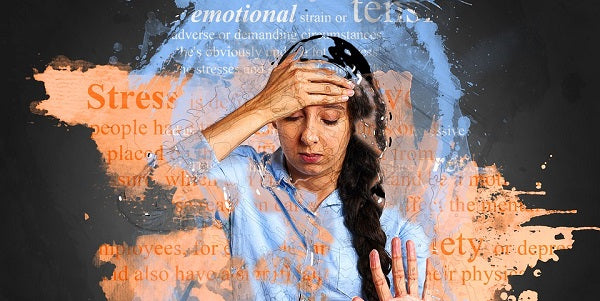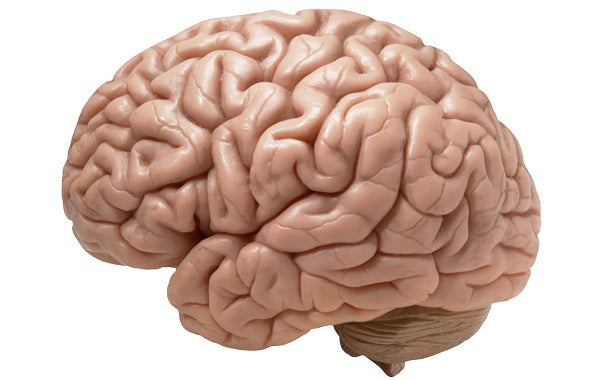Cannabidiol (CBD) is one of the two most abundant cannabinoid molecules found in marijuana and hemp plants, the other being tetrahydrocannabinol (THC). Both interact with a ubiquitous regulatory system in the body, known as the endocannabinoid system (ECS), which is composed of numerous receptors throughout the body.
CBD and THC primarily interact with two receptors: CB1 and CB2. These receptors are found all over the body, but most are located in the brain, nervous system and immune system. The receptors can be activated either by the body’s naturally occurring cannabinoids or by CBD and THC.

While THC binds directly to those receptors, CBD simply stimulates the body’s naturally occurring cannabinoids to activate them. This, in turn, encourages the ECS to work more efficiently and actively to bring the body back into balance. Because CBD does not bind directly to the CB1 and CB2 receptors, it is not psychoactive and does not produce psychological effects.
THC does offer various medicinal applications, but CBD has become increasingly popular because it is not psychoactive. In fact, numerous studies have been conducted to determine the extent of CBD’s medicinal and therapeutic applications. One study found that CBD offers a multitude of medicinal benefits, including:
- Antiemetic (reduces nausea and vomiting)
- Anti-inflammatory
- Antioxidant
- Antipsychotic
- Anticonvulsant (suppresses seizure activity)
- Anti-tumoral/anti-cancer
- Antidepressant
- Anxiolytic (combats anxiety)
- Analgesic (relieves pain)
The Effects of CBD on the Brain
Even though CBD is not psychoactive, it still has a profound effect on the body and in particular, the brain. That is hardly surprising, considering that one of the main receptors (CB1) CBD interacts with is found primarily in the brain. As soon as cannabinoids such as CBD and THC are consumed, they travel through the bloodstream to the brain and commence activation of the ECS.
The classic psychological effects associated with marijuana consumption are a direct result of THC binding to the CB1 receptors in the brain. This makes marijuana’s effect on the brain slightly more pronounced than CBD’s. Common side effects of THC consumption include euphoria, pain relief, boosted mood and, of course, the classic “munchies.” And, THC can produce many unwanted side effects such as paranoia, increased heart rate and general impairment of memory and motor skills.
As mentioned, CBD produces none of those effects because it does not bind directly to the receptors. In fact, clinical evidence shows CBD can actually help mitigate the side effects of THC. It does so by helping to prevent THC molecules from effectively binding to the CB1 receptors, thereby reducing the side effects of its consumption. For people who prefer consuming marijuana in whole-plant form, consuming a strand high in CBD and lower in THC can be a good option if side effects are a concern.
Another important effect of CBD on the brain is its ability to increase levels of anandamide present in the brain. Anandamide is one of the body’s naturally occurring cannabinoids, partially responsible for CBD’s ability to activate the ECS. In addition, anandamide is largely responsible for regulating the levels of various other chemicals found in the brain, including serotonin and dopamine.
Through anandamide, CBD consumption is ultimately responsible for regulating the vital neurotransmitters that control many of our sensations and emotions.
Here are two other significant effects of CBD on the brain:
1. It helps reduce symptoms of anxiety and depression.

Although marijuana consumption is often associated with relieving stress and promoting relaxation, there can be fairly significant adverse side effects like those mentioned above. Because of that, researchers have focused primarily on CBD’s therapeutic application for various anxiety- and depression-related disorders.
A study conducted by the Department of Neurosciences and Behavior at the University of Sao Paulo in Brazil used imaging scans to determine which regions of the brain are involved with CBD’s antianxiolytic (anti-anxiety) effects. The researchers found that CBD actually decreases blood flow to various brain regions, including the hypothalamus, linked to anxiety. When symptoms of anxiety occur, it typically results in the overactivity of these brain regions. Because CBD decreases blood flow, their overall level of activity is reduced, thereby mitigating anxious sensations.
RELATED: Doing It Wrong? CBD Oil Dosage for Anxiety
Evidence has shown that in addition to reducing anxiety symptoms, CBD can work as an antidepressant. A study by the Department of Psychiatry at the University of Newcastle upon Tyne in the United Kingdom found that CBD seems to balance dysfunction in the ECS. Plus, CBD interacts with a receptor in the serotonin system, 5-HT1A, that plays a part in symptoms of depression.
RELATED: CBD for Depression: CBD Can Help Improve Your Mood
2. It acts as a neuroprotectant.

Increasing evidence has shown that contrary to what the 1930’s “reefer madness” marijuana propaganda encouraged consumers to believe, marijuana and its various compounds such as CBD have been shown to act as a neuroprotectant rather than the opposite. This means CBD actually works to protect brain cells rather than destroy them.
A study by the Perinatal Laboratory of Experimental Pathophysiology at the Gurutzetako Hospital in Bilbao, Spain examined how CBD affects the brain after serious trauma and/or injury. Researchers found that CBD increased the number of healthy, viable brain cells and decreased damaged cells by more than 50 percent.
→ For more information about CBD’s ability to support brain injuries and traumas, click here.
CBD’s neuroprotective properties can be attributed to the way it interacts with the CB2 receptors and produces an anti-inflammatory response in the brain’s immune cells. This, in turn, decreases the likelihood and severity of brain damage caused by excessive inflammation.
The U.S. Department of Health and Human Services actually obtained a patent (US patent 6630507) for various cannabinoids’ antioxidant and neuroprotective properties. The patent effectively states that cannabis and the cannabinoids found in it can help protect brain cells from neurodegenerative diseases, including Alzheimer’s and Parkinson’s.
→ Read more about CBD’s effect on Alzheimer’s
→ For more information about how CBD supports Parkinson’s, click here.
Conclusion
CBD truly has a powerful effect on the body, and in particular, the brain. By interacting with various receptors in the brain and nervous system, CBD is able to provide numerous medicinal and therapeutic applications. Because of the way it interacts with the ECS and the receptors in the system, CBD can help bring the whole body back to balance from the inside out.
Sources:
https://www.ncbi.nlm.nih.gov/pubmed/22625422
https://www.ncbi.nlm.nih.gov/pubmed/20829306
https://www.ncbi.nlm.nih.gov/pubmed/21916860
https://www.ncbi.nlm.nih.gov/pubmed/26711860
https://www.ncbi.nlm.nih.gov/pubmed/18679164
http://www.google.ca/patents/US6630507
https://www.leafscience.com/2017/03/30/5-ways-cbd-affects-brain/




























